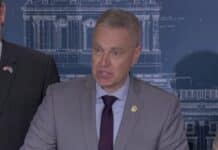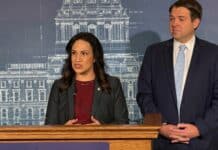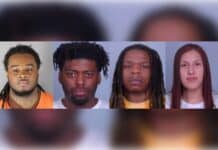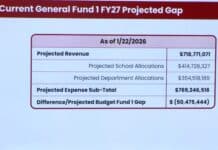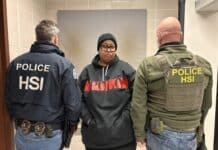
(The College Fix) — Current and aspiring teachers will need to ensure they are sufficiently in support of the LGBT agenda in order to have a license to teach in Minnesota under rules set to go into effect this July.
Minnesota’s new “Standards of Effective Practice” require teachers to “[foster] an environment that ensures student identities,” including “sexual orientation,” are “historically and socially contextualized, affirmed, and incorporated into a learning environment where students are empowered to learn and contribute as their whole selves.”
The standards, supported by the state’s Democrat Gov. Tim Walz, have drawn religious liberty concerns from a leading Supreme Court litigation group.
“In general, a state has the broad authority to determine curriculum for its public schools, and teachers typically cannot object to that curriculum,” Alliance Defending Freedom attorney Tyson Langhofer told The College Fix via a media statement. “This means that the state government can tell its public-school teachers to teach the theory of a certain ideology, political idea, or religion.”
Langhofer told The College Fix that the government cannot force teachers to agree with a certain belief or ideology through their speech or conduct.
“Minnesota’s new standards of effective practice for teachers appear to do just that. The standards don’t simply require teachers to teach a certain curriculum,” he said. “The standards appear to require teachers to adopt practices that could violate their constitutional rights.”
Langhofer said First Amendment protections could be used to push back against the standards.
“If teachers are forced to personally endorse ideas they disagree with or participate in teaching practices that violate their religious beliefs, they may be able to challenge these practices by arguing that their right to free exercise is being violated. It all depends on how these new standards are implemented,” he said.
His employer is no stranger to First Amendment and religious liberty lawsuits in the classroom. ADF has successfully defended a professor punished for refusing to use a student’s transgender pronouns, as previously reported by The Fix.
What’s more, the new regulations also require teachers to focus on intersectionality in their teaching.
Teachers must be able to help students learn about “power, privilege, intersectionality, and systemic oppression in the context of various communities,” according to the standards. They should also “[empower] learners to be agents of social change to promote equity.”
Teachers should also use “anti-racist” teaching methods, according to the standards.
The Fix reached out via email to Minnesota Department of Education officials, including Communications Specialist Tanwaporn Chino and Executive Director Yelena Bailey, seeking information on the federal government’s role in protecting freedom of speech and religion in education, but received no response.
The Fix also contacted North Central University, Bethel University, and Crown College to ask about their takes on the new standards, but received no response.
While the state focuses heavily on identities, many students are struggling with basic reading and math.
For example, only 12 percent of black public school eighth graders are proficient in reading, according to the state’s 2022 report. The average score of eighth graders is just a point above the national average, but overall proficiency is low. Test scores are also lower than they were in 1998.
Only 15 percent of Hispanic eighth graders and 35 percent of white eighth graders are proficient in reading.
This article was originally published by The College Fix.


